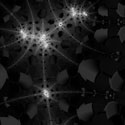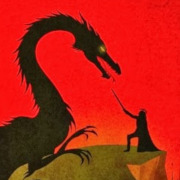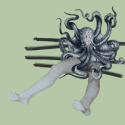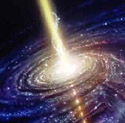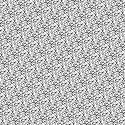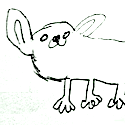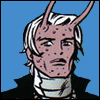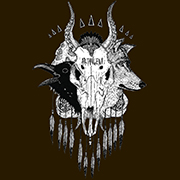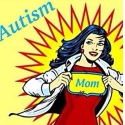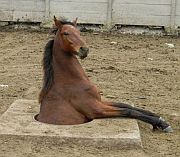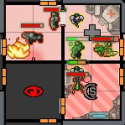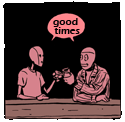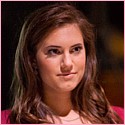|
Nuclearmonkee posted:Zone of thought series: Thank you! I'll get started on them once I finish up Manhattan in Reverse  . .
|
|
|
|

|
| # ? May 27, 2024 06:16 |
|
Turin Turambar posted:I was wondering... anyone know a book like this? Hmm. I can't think of anything off the bat. The closest I can think of is John Scalzi's book Agent To The Stars. I don't know how "realistic" anyone would call it, but it is a clever take on the usual "First Contact" style stories, set in modern times. The main conceit of the novel is that, when aliens arrive on Earth, instead of revealing themselves to our leaders, they go to a Hollywood talent agent. Reason being: they're versed enough in human culture to realize that their appearance (and mere existence) will horrify most humans, so they enlist the help of a talent agent to help "sell" their First Contact with humanity (so we don't end up immediately going to war with them out of xenophobia).
|
|
|
|
Well, it's something. It seems a bit cheesy? But at least he aliens have a bit of common sense, for example I would hate aliens that just would land on Earth without any thought, a more realistic behavior would be to first understand humans looking at all our culture, history, internet, etc. I would love a Culture big book of the Culture doing a first contact on Earth (I know there the short story in A State of the Art, but it's not first public contact).
|
|
|
|
Turin Turambar posted:Well, it's something. It seems a bit cheesy? But at least he aliens have a bit of common sense, for example I would hate aliens that just would land on Earth without any thought, a more realistic behavior would be to first understand humans looking at all our culture, history, internet, etc. Yeah. The concept is meant to be kind of goofy; Scalzi's a clever writer, in the vein of Douglas Adams, and the book's relatively snarky (in that everyone in the book is snarky). But it's not bad, and he does give it a "real" plot (i.e. the whole book's not a joke). And yeah, that's a major theme of the book: the aliens aren't stupid, and they're honestly trying to figure out the best way to reveal themselves without causing humans to turn on them.
|
|
|
|
The Draco Tavern by Larry Niven is...kind of like that. It's a collection of short stories all set in a bar that services the first spaceport established on Earth after first contact. There's a lot of nuts and bolts type stuff in it about how to realistically deal with a bar that caters to aliens, as well as how alien contact has changed earth. He wrote the stories from the 1970s-2000s and they're all set in a sort of vague 'near future' timeframe.
|
|
|
|
Turin Turambar posted:Well, it's something. It seems a bit cheesy? But at least he aliens have a bit of common sense, for example I would hate aliens that just would land on Earth without any thought, a more realistic behavior would be to first understand humans looking at all our culture, history, internet, etc. I really liked Calculating God, by Robert J. Sawyer, although it doesn't quite have the large scope on Earth you're looking for. It's about an alien that arrives on Earth, goes directly to a paleontologist, and tells him he wants to study fossils for evidence of God. I also think that anyone interested in first contact stories ought to read "His Master's Voice" by Stanislaw Lem. Vertigus fucked around with this message at 08:30 on Jan 28, 2012 |
|
|
|
I've realized that something I really enjoy is the exploration of alien environments. That's the reason why I liked Neal Asher's The Skinner and The Voyage of the Sable Keech, with it's depiction of the alien world of Spatterjay. Likewise, I really liked the (non-space opera) book Fragment by Warren Fahy, where the protagonists explore this deserted island with weird creatures and fauna. I just don't know more of these books, so if you have any suggestions I'd be happy to put them on my Kindle!
|
|
|
|
If you can find Expedition by Wayne Barlowe, it sounds almost exactly what you'd be looking for. It's pretty hard to find, though.
|
|
|
|
TjyvTompa posted:I just received Alastair Reynolds new book Blue Remembered Earth, anyone else pick this up? I just finished this and really enjoyed it (although the scavenger hunt dragged on a bit). Considering it's (supposed to be?) part of a trilogy, it ends really well, but then I'm a fan of Reynolds anyway. Question about the book ending (spoiler warning): Is it ever made clear what the new physics inscription was (physically) part of? Was it on Phobos and the monolith impact excavated it? Was it on / in the monolith / meteorite? I read the passages involving the monolith twice, but couldn't quite make sense of where the debris fragment actually came from.
|
|
|
|
Okay so I found the best used bookstore ever and some awesome person donated a ton of books and I snagged them all. I have no idea where to start. Some of the authors I've read before and liked, some I've just heard good things about, and a couple of the books I bought based on the covers alone (they were all $0.75USD!) Here's the list of what I got-- any suggestions? Downbelow Station - CJ Cherryh Light Music - Kathleen Ann Goonan Legacy - Greg Bear Engine City - Ken Macleod Cosmonaut Keep - Ken Macleod Dark Light - Ken Macleod Seeker- Jack McDevitt Rogue Star - Michael Flynn Beyond Infinity - Gregory Benford In The Ocean Of The Night - Gregory Benford Earth - David Brin The Ethos Effect - LE Medesitt, Jr At Winter's End - Robert Slverberg Remnant Population - Elizabeth Moon I also stupidly bought these two new a few days before I found the used place Firestar - Michael Flynn Hidden Empire - Kevin J Anderson I also got (used): Failure Is Not An Option - Gene Kranz Plus_Infinity fucked around with this message at 23:55 on Feb 2, 2012 |
|
|
|
It's a good thing you bought Firestar by Michael Flynn, because Rogue Star is the sequel (there are two other books in the series, and apparently he did/is writing a sequel trilogy also). I liked Firestar, which when it came out was a pretty good "near future history" of how a private industrialist decided to finance an SSTO project. As the sequels go on they get a bit more out there (lots of libertarian stuff as well as a really bizarre plot in the last book about aliens trying to destroy earth with asteroids) that kind of mars the tone of the earlier books for me. But definitely read Firestar at the least.
|
|
|
|
Chairman Capone posted:It's a good thing you bought Firestar by Michael Flynn, because Rogue Star is the sequel (there are two other books in the series, and apparently he did/is writing a sequel trilogy also). I liked Firestar, which when it came out was a pretty good "near future history" of how a private industrialist decided to finance an SSTO project. As the sequels go on they get a bit more out there (lots of libertarian stuff as well as a really bizarre plot in the last book about aliens trying to destroy earth with asteroids) that kind of mars the tone of the earlier books for me. But definitely read Firestar at the least. Thanks! I sometimes buy sequels at used book stores when they're so cheap and look decent, because I often come across the first book (or accidentally buy it and then the sequel without realizing- ha! not the first time I've done that either). Not so sure how much I'll be able to tolerate libertarian sperging, but usually I can just ignore it and enjoy the big space explosions or whatever.
|
|
|
|
y_y posted:I just finished this and really enjoyed it (although the scavenger hunt dragged on a bit). Considering it's (supposed to be?) part of a trilogy, it ends really well, but then I'm a fan of Reynolds anyway. I'm halfway through the book and digging it so far, but holy poo poo Reynolds is really keeping the "reluctant protagonist" cliche going on for far too long. "Hey here's *plot event*, want to move the story along?" "No." "Hey something else crazy happened, are you going to be a part of this?" "No." "Want to go to the Moon?" "No." "How about Mars?" "No." What drives me even crazier is that the guy isn't even good at studying the elephants he puts off the rest of the world for.
|
|
|
|
Plus_Infinity posted:Thanks! I sometimes buy sequels at used book stores when they're so cheap and look decent, because I often come across the first book (or accidentally buy it and then the sequel without realizing- ha! not the first time I've done that either). The first book or two (it's been a long while since I've read it) isn't that bad with the libertarian stuff. Talking about it actually makes me want to read it again, and I'm with you in that I have a low libertarian tolerance. Now, if you want to talk about a Michael Flynn book that's really bad on this account, look no further...
|
|
|
|
Vertigus posted:I'm halfway through the book and digging it so far, but holy poo poo Reynolds is really keeping the "reluctant protagonist" cliche going on for far too long. "Hey here's *plot event*, want to move the story along?" "No." "Hey something else crazy happened, are you going to be a part of this?" "No." "Want to go to the Moon?" "No." "How about Mars?" "No." What drives me even crazier is that the guy isn't even good at studying the elephants he puts off the rest of the world for. I've only read Revelation Space, but I had a similar problem with that. Some of the characters go from being short sighted and lethargic to ridiculously insightful and proactive then back again for no apparent reason. Instead of coming across as humans with flaws they strike me as completely unrelatable, with bouts of genius that seem cartoonish.
|
|
|
|
I read all through the Revelation Space series and liked it well enough. But House of Suns just lost me. The entire first third of the book is entirely driven by a pair of immortals who are late to the immortal cocktail party.
|
|
|
|
physeter posted:I read all through the Revelation Space series and liked it well enough. But House of Suns just lost me. The entire first third of the book is entirely driven by a pair of immortals who are late to the immortal cocktail party. Huh. I was the opposite way: I couldn't put House Of Suns down. I will agree that the first part is a bit...odd. Not necessarily boring, but the whole subplot with Dr. Meninx or whatever his name was. The super paranoid guy in the tank they were carrying around. He gets all freaked out by Hesperas because he thinks he's going to kill him...and then he dies, so the main characters (and us, the reader) think Hesperas did it. But it turns out he didn't! Oh well! Let us never talk about the matter again!.
|
|
|
|
I pretty much loved everything in the Revelation Space universe, but I'm 60% through House of Suns now and it's easily the best thing I've read by Reynolds. I'm glad I read Thousandth Night first though.
|
|
|
|
Reynolds is really good when he's on and really lovely when he's not. The steampunk book he did (can't even remember the name) was pretty much total poo poo. Also Century Rain was pretty terrible. It really kind of feels like where he shines is creating interesting worlds and then revealing their unique twists and elements in ways that are connected to the plot. Some of the ideas he's fleshed out have been so compelling to me. For instance the idea of demarchy (which unfortunately is only properly explained in the Prefect) is just really loving cool to me and feels like something that almost would have to happen when the technology for it became available. Sometimes though his "nerd fetishes" break the immersion of whatever world he's creating. For instance the ultras in revelation space are way too "goth" to be believable. Given the kinds of technologies available in the RS universe, it's really hard to believe that people would replace their lungs with some kind of bellows looking breathing device (as a generic example). Also the hyperpigs are an example of something that COULD happen but probably wouldn't but that he included to spice things up or whatever. Just thinking of a talking pig running around kind of broke a lot of the immersion for me. In the steampunk book the world wasn't interesting. There were elements and ideas in there that were interesting but the world never felt real to me (in contrast to the revelation space universe for instance). It also had one of those cardboard main characters that you didn't give a poo poo about. Also airships were an obvious nerd-fetish that were forced into this book to its detriment. Century Rain also had the cardboard main character and a world that felt even more fake. The alternate Earth idea wasn't even really interesting and the ending tried to be mysterious but you ended up not even caring since the book was really lame in the first place. In Century Rain it felt like he did a half-rear end job developing both settings featured in the book instead of doing a good job on one. I'm just starting his new trilogy and am only like 100 pages in. I can see the reluctant protagonist thing getting to be annoying but so far I'm enjoying it. I also tried reading The Foundation Trilogy by Asimov and got halfway through the second book before giving up on it. It's one of those things where you have to really appreciate the fact that he wrote this in the 40's. Unfortunately the plot isn't gripping enough to keep reading. You can feel impressed that someone from the 40's (before we even were in low earth orbit) was able to think up a galactic empire, but the plot doesn't make me want to keep reading. Also while it's impressive that he looked so far ahead, some of the stuff just feels so incredibly short-sighted to a modern reader. Nuclear power is portrayed as the apex of human technology. From the 40's it would be easy to imagine that nuclear power was going to change everything, but the book is set so far into the future that humans don't even remember which planet they originated on and nuclear power is still the most advanced thing they have. The average human lifespan also seemed to be about 70 or 80, which just seemed like a really lazy oversight as well. I usually don't nitpick poo poo like this, but the plot wasn't strong enough for me to overlook all of this. The concept of the plot is actually pretty cool and I was pretty into it for a while. Around where I stopped reading though I got pretty tired of the viewpoint jumps. The book just keeps skipping 100 years or so into the future every 60-70 pages or so. Every time there is a jump you have a new setting and characters but they all are part of the same over-arching story. This was pretty cool for the first four or five times, but I reached a point where I stopped really caring and the effort of getting to know the new setting and characters wore really thin. None of the characters were compelling either, so I just didn't bother to keep going. angel opportunity fucked around with this message at 19:34 on Feb 3, 2012 |
|
|
|
systran posted:Reynolds is really good when he's on and really lovely when he's not. The steampunk book he did (can't even remember the name) was pretty much total poo poo. I think the common consensus is that Terminal World is a young adult book that for some reason wasn't marketed as one. And I agree, it had some really cool ideas, but they went nowhere. And the rest was total poo poo with stereotypical cardboard-figure characters. Basically, nobody liked Terminal World. And yeah, House of Suns owns.
|
|
|
|
HUMAN FISH posted:Basically, nobody liked Terminal World. But...but...I liked Terminal World Really, I don't understand the hate I'm seeing. Sure, the main character wasn't the most complex guy, but the rest of the story and setting kept me intrigued. Personally I wished more of his transformation was explored. Like, if instead of just "well, he looks weird", it would've been more interesting if he had fully started re-growing his wings and poo poo. Also I wish more of the backstory had been revealed. It was so shrouded in myth and vague references that I completely missed the fact that they're actually on Mars, not Earth, and the whole weird side plot with them discovering the Chinese city/civilization in the Bane was glossed over and then never mentioned again. Not to mention the ending, which essentially boiled down to "nothing really got solved, but now there's hope that it will be in the future". But those were really minor quibbles on my part; overall I enjoyed it.
|
|
|
|
Plus_Infinity posted:
That's not a bad haul at all for a used book store. Remnant Population is probably the best novel on there. It's one of the better first contact novels around. It's also one of the vanishingly few with an elderly protagonist. My mother gardens, is crank irascible and not much younger than the woman in the book. Mom loving loved this novel. If you've got older female friends and relatives pass this book along to them.
|
|
|
|
Shnakepup posted:But...but...I liked Terminal World Yeah, lots of cool ideas and concepts which are never explored and drowned by one-dimensional cartoon villains. I generally hate steampunk (though I really like The Half-made World), but this was just criminally bad. It definitely had potential, I'll give you that. I loved some of the more explorationary bits, but in the end? It was just all wasted.
|
|
|
|
systran posted:Also while it's impressive that he looked so far ahead, some of the stuff just feels so incredibly short-sighted to a modern reader. Nuclear power is portrayed as the apex of human technology. From the 40's it would be easy to imagine that nuclear power was going to change everything, but the book is set so far into the future that humans don't even remember which planet they originated on and nuclear power is still the most advanced thing they have. The average human lifespan also seemed to be about 70 or 80, which just seemed like a really lazy oversight as well. Tangent: I think scifi more clearly evokes the collective feelings of the era it was written in than any other literary genre, and that's probably the main reason I read it. In the 40's and 50's you generally saw a rosy picture of our future where ever growing technology solves all of our problems and leads to enlightened societies. In the 60's militarist themes becomes a big thing, you can see influences of the sexual liberation/counterculture movement, and SF authors start to more consciously explore fields like politics and social theory. In the 70's there's a backlash against militarism (see Joe Haldeman and much of Niven's stuff) because of Vietnam. Starting in the 80's and continuing to the present there is growing apprehension and pessimism about the ability of technology to magically fix everything, fear that our new power has hidden costs, and the idea that we are giving ourselves the tools to gently caress things up worse than ever (see cyberpunk, most modern space opera, and anything by Paolo Bacigalupi). Fray fucked around with this message at 05:56 on Feb 4, 2012 |
|
|
|
Don't get me wrong, that was interesting to me but lacking a compelling plot I had already gained as much insight as I was going to into the ideas of Asimov's time from reading a book and a half of the trilogy.
|
|
|
|
I just finished book one of Poseidon's Children... I enjoyed it overall and my main feeling is that it "has potential". When I started revelation space all the books were already out and finished so I started into book two immediately after finishing book one. I therefore don't even remember evaluating book one as its own thing. I felt slightly shafted at the end of this book with the very vague "quark states blabla" explanation and then just saying that would allow them to make faster propulsion systems. Looking at this as a stand-alone book, the "aliens left it on a rock" thing felt like a really lame way to allow the humans to start interstellar travel. I'm guessing that will be a lot more satisfying after the third book throws more explanation back onto it, but as the "reveal" of this book it fell pretty flat. Without knowing where he is going with the following books it's hard to really form an opinion on this one alone. I was pretty into it as I was reading it and nothing stuck out to me as really terrible (though the mermaid poo poo was bordering on that). Also the whole "mystery" of why Matilda killed Memphis was not nearly as interesting as the author thought. He presented it as this kind of "holy poo poo" reveal and I just kind of thought "oh... okay". I liked the world he created here... it feels like a believable and plausible possible future (minus the mermaids). The reluctant narrator thing only went on a little bit too long; I think it was right around the half-way point that Geoffrey was ready to follow the clues all the way. The way he portrayed the cousins was kind of off as well. At one moment they were douchebag guys playing polo right after Memphis died and saying they didn't give a poo poo about it and the next they were reasonable human beings. It didn't really even feel like narrator bias or anything... just inconsistent writing. I'm looking forward to seeing where the next two books will go. Now that he has dropped in the "it was aliens" thing he pretty much has to make it pretty unique to be worth it (to me). Reynolds is usually pretty good at doing that, so I'm staying optimistic.
|
|
|
|
Plus_Infinity posted:Downbelow Station - CJ Cherryh Downbelow Station was the first Cherryh book I ever read and I liked it enough to read a dozen more. She's a really prolific author, so there's a billion more Alliance/Union books, some light space adventures (Merchanter's Luck, Tripoint) and others intricate and literary (Cyteen). Earth is set in 2038 as seen from 1990, so it has a lot of interesting speculation, a lot of which is going to be hilariously overtaken by events at this point (not a bad thing, IMO), but after an enjoyable story the ending was pretty dire (also a problem with Brin's Kiln People). I haven't read The Ethos Effect, but it's a direct sequel to The Parafaith War, so you may want to see if you can snag that one first. Although there's some space and some battles I'm not sure I'd call The Parafaith War space opera, but it's one of the more interesting SF examinations of religion and culture I've read. A lot of the story details have stayed with me for almost fifteen years so it must have been doing something right.
|
|
|
|
y_y posted:
The inscription was inside the monolith, which was made to look like a natural formation.
|
|
|
|
I think it was on the face of the monolith, but something hit it and cut the face with the inscription clean off
|
|
|
|
Okay, it took me a while because of other commitments getting in the way, but I just wrapped up Scott Westerfield's The Risen Empire. I recommend it heartily, and there's been talk of it before in the thread, but for the love of God, be warned that it has a really epic climax setting up a sequel that may or may not ever be written. Honestly I wonder if the author's paralyzed thinking "gently caress, how can I write a sequel that does justice to that setup?"
|
|
|
|
Antti posted:Honestly I wonder if the author's paralyzed thinking "gently caress, how can I write a sequel that does justice to that setup?"
|
|
|
|
Antti posted:Okay, it took me a while because of other commitments getting in the way, but I just wrapped up Scott Westerfield's The Risen Empire. I recommend it heartily, and there's been talk of it before in the thread, but for the love of God, be warned that it has a really epic climax setting up a sequel that may or may not ever be written. Wait, there WAS a sequel to The Risen Empire, called The Killing of Worlds. But Westerfeld has said he has no plans to write any stories after THAT in that universe. edit: Oh, I see, they were republished in one edition with that name. Yeah, unlikely to be more books, Westerfeld sells tons of YA novels that tens/hundreds of thousands of people love, and his sci-fi got much less attention.
|
|
|
|
I might've missed it, but has anyone given Faith by John Love a read yet? I've finished it last week after picking it up in a recent Sci-Fi binge and liked it a lot. Describing it as bastard child of Iain M. Banks and Peter Watts actually seems quite apt - I just started reading into The Culture novels and finished Blindsight (which I've found thanks to goon recommendation and is a fantastic read) a good while ago, and the comparison definitely makes sense. I'd recommend it to anyone who's a fan of both (or either)! 
|
|
|
|
SirViver posted:I might've missed it, but has anyone given Faith by John Love a read yet? I have heard good things about it so I was thinking of getting it. Could it be considered space horror? Just wondering, as that's becoming my favourite genre, but even if it's not I'll still probably read it. Also, is the ending as amazing and mindblowing as some reviews have made it out to be?
|
|
|
|
Yeah, I'd consider it space horror. I don't exactly have much reference material as to my shame I've just recently started diving into the Sci-Fi scene (in book form, at least), but Blindsight is the closest I can compare it to. I find it's not quite the same extent of horror due to the different situation and position the crew finds itself in, but it's definitely there. As for the ending, well, it's difficult to rate if you don't have much to compare it to. The book got more and more intense towards the end and its conclusion caught me completely off guard, leaving me with goosebumps all over. Maybe I'm just easily excitable due to my relative inexperience? Who knows, but it definitely left an impression. I'd much like to hear the opinions of more seasoned readers myself.
|
|
|
|
I just finished Use of Weapons. The big reveal left me physically ill, which hasn't happened since the (spoiler for A Storm of Swords) Red Wedding. Good grief. I feel like the entire world has been turned upside down.
|
|
|
|
Does Stephen Baxter fit into this thread at all? His books deal with time travel as often as they do space travel but there are some really cool themes in them.
|
|
|
|
I love Stephen Baxter, I honestly think he's one of, if not the, most creative sci-fi authors currently writing. I've brought up his Xeelee books and Ark here before. The Manifold series, Anti-Ice, The Time Ships, NASA Trilogy, all very, very worth reading. He's apparently doing a Doctor Who novel now.
|
|
|
|
Chairman Capone posted:I love Stephen Baxter, I honestly think he's one of, if not the, most creative sci-fi authors currently writing. I've brought up his Xeelee books and Ark here before. The Manifold series, Anti-Ice, The Time Ships, NASA Trilogy, all very, very worth reading. He's apparently doing a Doctor Who novel now. Voyage is my favorite of his. Titan is so drat depressing.
|
|
|
|

|
| # ? May 27, 2024 06:16 |
|
Voyage is definitely an outlier as it's basically his only book that doesn't end with humanity/the universe/the multiverse being killed off.
|
|
|




